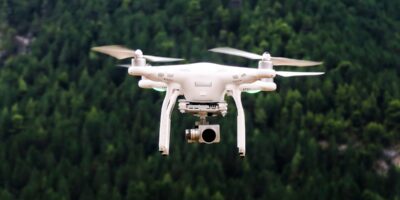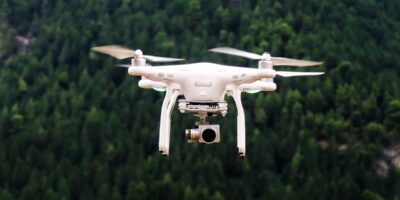Drone Construction Monitoring
Drone Construction Monitoring
Drones are transforming construction site management. They provide aerial views of work sites, collect data, and help ensure projects run smoothly. Multiple benefits come from using drones in construction monitoring.

Enhanced Site Surveys
Traditional surveying methods are time-consuming and sometimes risky. Drones provide a safer, quicker alternative. Surveying teams can deploy drones to capture detailed site measurements. The data from drone surveys can be integrated into geospatial software to create accurate site maps.
Progress Tracking
Regular monitoring of construction progress is essential. Drones can regularly fly over sites to capture images and videos. These visual records help teams compare various stages of construction. Project managers can quickly identify any delays or inconsistencies.
Improved Safety
Construction sites pose safety risks. Drones can access hard-to-reach or hazardous areas without endangering human workers. These unmanned systems can inspect tall structures, scaffolding, and other dangerous zones. This reduces the risk of accidents.
Quality Control
Maintaining high-quality construction standards is crucial. Drones capture detailed images that reveal imperfections or issues in the structure. This allows for immediate corrections, ensuring the project adheres to design specifications.
Resource Management
Efficient use of resources impacts project timelines and budgets. Drones help monitor material usage on site. This data ensures resources are evenly distributed and helps prevent wastage. Teams can plan better with real-time inventory tracking.
Environmental Monitoring
Construction sites can impact the environment. Drones help monitor environmental factors like water runoff, soil displacement, and vegetation health. This monitoring helps construction companies minimize their ecological footprint and comply with regulations.
Documentation and Reporting
Drones provide comprehensive documentation of the construction process. High-resolution photos and videos create a visual record. This record aids in reporting to stakeholders or addressing legal and regulatory requirements.
Cost Efficiency
While there is an initial investment, drones can save money in the long term. They reduce the need for specialized survey teams, equipment rentals, and prolonged project timelines. Automated drone flights mean lower labor costs and better resource allocation.
Technology Integration
Modern construction projects leverage technology for better outcomes. Drones integrate well with other tech tools. They can work in tandem with Building Information Modelling (BIM) and Geographic Information Systems (GIS). These integrations enhance data analysis and project planning.
Client Engagement
Clients appreciate regular updates on project progress. Drones can provide detailed visuals for client presentations. These updates build client trust and ensure transparency. Engaged clients are more likely to be satisfied with the outcomes.
Insurance and Claims
Insurance companies often require detailed documentation for claims. Drones provide precise data that support claim processes. In cases of disputes or damage assessment, drone footage can be invaluable. This speeds up the claims process and ensures fair evaluations.
Regulatory Compliance
Construction projects must adhere to various regulations. Drones help ensure compliance by monitoring activities and documenting adherence to standards. This helps avoid fines and project shutdowns due to non-compliance.
Future of Drones in Construction
As technology advances, the role of drones in construction is set to grow. Innovations in drone capabilities and new software tools will enhance their utility. Construction firms that adopt drones early will likely lead the industry in efficiency and effectiveness.




Subscribe for Updates
Get the latest articles delivered to your inbox.
We respect your privacy. Unsubscribe anytime.